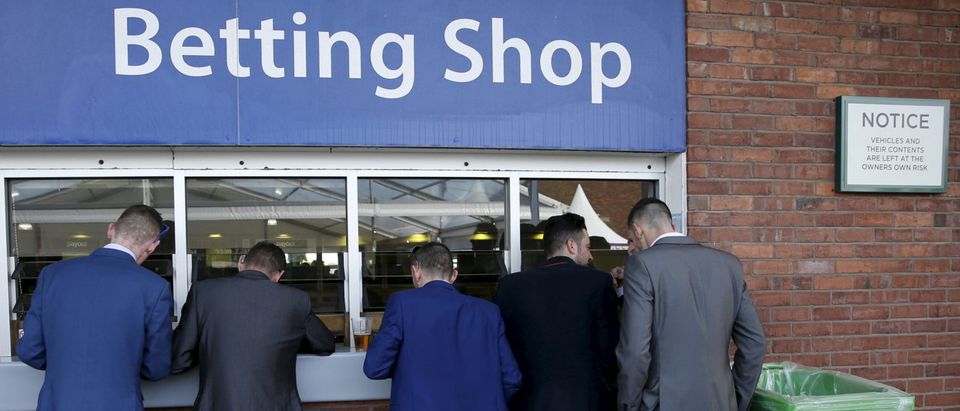The U.S. Supreme Court Monday struck down a federal law effectively banning sports betting in most states.
The decision is a boon for sports enthusiasts and dozens of states that hope to fill coffers with gambling revenue. The American Gaming Association estimates that Americans wager $150 billion in illegal sports gambling markets every year.
At issue in the litigation is the 1992 Professional and Amateur Sports Protection Act (PASPA), which restricts sports gambling to Nevada, Delaware, Montana, and Oregon. The law prohibits states from legalizing sports lotteries. This provision is enforced through civil suits brought by organized athletic leagues, but does not make gambling a federal crime.
In a bid to revive Atlantic City’s faltering economic prospects, New Jersey decriminalized sports betting in 2014. (RELATED: Supremes Lean Toward Trump In Travel Ban Hearing)
A coalition of professional athletic associations led by the NCAA sued the state, arguing New Jersey was in violation of PASPA. In turn, New Jersey argued that PASPA is unconstitutional, since it compels the state to carry out a federal policy against its will. This, they argue, violates the principles of federalism laid out in the Constitution.
A seven-justice majority led by Justice Samuel Alito agreed, finding PASPA forces the states to enact and enforce federal regulatory regimes.
“It is as if federal officers were installed in state legislative chambers and were armed with the authority to stop legislators from voting on any offending proposals,” Alito wrote in his opinion for the Court. “A more direct affront to state sovereignty is not easy to imagine.”
The sports leagues, with the support of the Trump administration, argued PASPA was lawful because it does not require states to take affirmative action. Rather, it prohibits them from enacting a law or regulation. But Alito said this was a distinction without a difference.
“This distinction is empty,” he wrote. “The basic principle — that Congress cannot issue direct orders to state legislatures — applies in either event.”
Alito’s opinion was joined in full by Chief Justice John Roberts and Justice Anthony Kennedy, Clarence Thomas, Elena Kagan, and Neil Gorsuch and in part by Justice Stephen Breyer. Justice Ruth Bader Ginsburg dissented, joined by Justice Sonia Sotomayor.
Congress could still contain the spread of sports betting by adopting legislation placing gambling under federal control. But the prospect is unlikely, as most athletic associations have quietly acquiesced to gambling, provided states share a portion of the revenue with them. What’s more, there is no obvious congressional constituency for such legislation. The principal architect of PASPA, former Democratic Sen. Bill Bradley of New Jersey, left Congress in 1996.
The nation’s largest sports contest providers promised new platforms for facilitating athletic wagers in the coming weeks.
“Our mission has always been to bring fans closer to the sports they love and now, thanks to the wisdom of the Supreme Court, DraftKings will be able to harness our proven technology to provide our customers with innovative online sports betting products,” DraftKings CEO and co-founder Jason Robins said in a statement shortly after the ruling. “This ruling gives us the ability to further diversify our product offerings and build on our unique capacity to drive fan engagement.”
Stars Group Inc., which owns the PokerStars platform, acquired Sky Betting & Gaming on April 22 for $4.7 billion, in the expectation that the high court would legalize sports gambling in the U.S.
New Jersey and Delaware are expected to open gambling pools and establish regulatory schemes in the coming weeks. Other states, including New York and Pennsylvania, are expected to establish lotteries in time for the 2018-2019 NFL season. On Wall Street, shares of casino operators soared on news of the decision.
Disclosure: The author’s wife works for a law firm involved in this case.
Send tips to kevin@dailycallernewsfoundation.org.
All content created by the Daily Caller News Foundation, an independent and nonpartisan newswire service, is available without charge to any legitimate news publisher that can provide a large audience. All republished articles must include our logo, our reporter’s byline and their DCNF affiliation. For any questions about our guidelines or partnering with us, please contact licensing@dailycallernewsfoundation.org.


